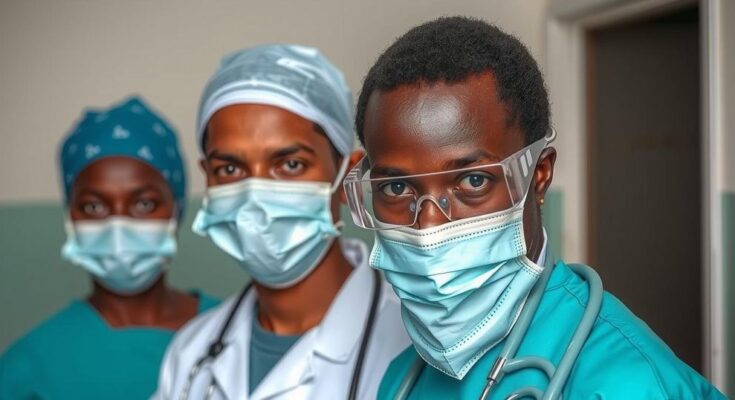Sudan’s ongoing war between military factions has wreaked havoc on the healthcare system, with hospitals under constant threat of attack and health workers risking their lives to provide care. The current situation is exacerbated by widespread malnutrition and a humanitarian crisis affecting millions.
In Sudan, Dr. Mohamed Moussa, a general practitioner, copes with the unrelenting violence that surrounds his hospital, Al-Nao, in Omdurman, near Khartoum. For over a year and a half, the prolonged conflict between military leaders has transformed healthcare facilities into perilous environments. The ongoing war has resulted in significant loss of life and widespread displacement, exacerbating the already fragile medical infrastructure. Health workers, disregarding personal safety, continue to serve countless victims of the violence while also facing the looming crisis of malnutrition that affects millions. The conditions within hospitals are dire, with constant threats from shelling and attacks, contributing to an acute shortage of medical services and resources.
Sudan has been embroiled in conflict since April 2023, presenting a humanitarian disaster of unprecedented scale, with tens of thousands dead and millions displaced. The fighting has primarily been between army chief Abdel Fattah al-Burhan and former deputy Mohamed Hamdan Daglo of the RSF. The conflict’s repercussions on healthcare have been catastrophic, with approximately half of Khartoum’s hospitals damaged and widespread reports of attacks on medical facilities. The situation has further been aggravated by famine risk, leaving millions of people vulnerable and without access to essential medical care.
The war in Sudan has devastated the healthcare system, leaving medical personnel like Dr. Moussa at the frontline of a growing humanitarian crisis. The conflict not only poses acute dangers to health workers but also has led to substantial casualties among civilians, particularly children suffering from malnutrition. Immediate international aid is critical to prevent the healthcare situation from deteriorating further and to support the brave healthcare professionals dedicated to saving lives amidst chaos.
Original Source: www.barrons.com




